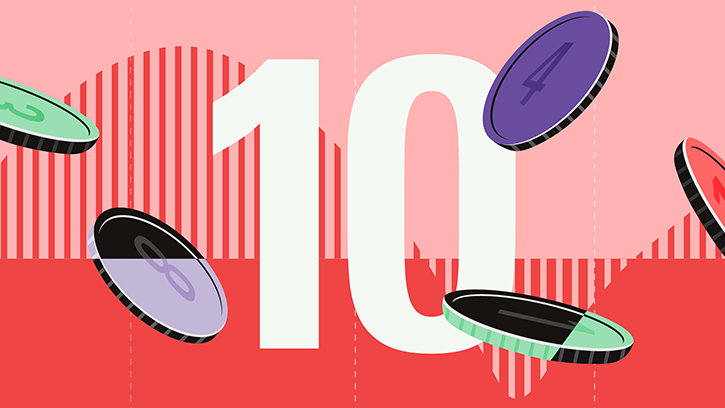
With the rise of the "Magnificent Seven", the US stock market has recently made the headlines for becoming dominated by a handful of stocks. But rising concentration is not purely a US phenomenon – it has become a feature of many other global equity markets.
Zooming in on European equity markets, we see concentration rising as well. In a recently-published report, we have looked at stock market concentration globally, with a particular focus on the Europe. The increase has however been much more muted and the difference from the previous peak in concentration in 2008 is not nearly as large as in the US context.
In terms of investment style, concentration has been most pronounced in the growth space, whereas it has remained fairly moderate among value stocks.
Unlike the top US stocks, which mostly reside in the technology and communications sectors, today's European heavyweights are more diversified by sector, with representation across the IT, healthcare, consumer, energy, and financials sectors.
A Limited Number of Stocks Play Large Roles in Total Returns
Contributions to returns measure to what extent the largest stocks are driving the overall direction of the market. For many of the world's largest (regional) indexes, the impact of top names on returns has been significant.
As the US stock market captured investors' attention with the outsize gains of the Magnificent Seven, the top names in Asia and the emerging markets in fact accounted for a much larger share of their respective index's returns.
In Europe, the top 10 growth stocks were responsible for more than half of five-year returns; in the US, their share was even higher, at two thirds.
Turning to value indices, the leadership is broader. For example, the largest 10 holdings of the Morningstar Developed Markets Europe Value Target Market Exposure Index accounted for 23% of returns in the last five years. In the US, their contribution stood at 28%.
What are the Implications for Active Funds?
Actively managed funds have struggled to outperform top-heavy indexes in recent years as they do not have sufficient exposure to the largest stocks, either because of restrictions on security-level concentration or, as importantly, because they strive to differentiate themselves from the underlying index in order to generate excess returns.
In periods of high concentration, which tend to be associated with large-cap leadership, this puts them at a disadvantage to passive funds that allocate capital based on market capitalisation.
In the European context, concentration is highest in the Europe large-cap growth equity category. On average, funds in this category were underweight in top performers ASML (ASML), SAP (SAP), and Airbus (AIR) from January 2023 to May 2024, which goes some way toward explaining their underperformance relative to the Morningstar Developed Markets Europe Growth Target Market Exposure category index.
Concentration in a few names with an outsize contribution to returns poses a risk to diversification and can encourage herding behaviour, with active managers under pressure to invest in the top names on fear of missing out on returns.
Shunning the top performers in a concentrated rally is a recipe for underperformance, though, to which managers who chose not to invest in Novo Nordisk (NOVO B) or ASML in 2023 and the year-to-date can attest.
What Should Investors Do About Concentration?
Concentrated funds have a better chance of capturing the returns of high-momentum stocks in market rallies, but they are more susceptible to changes in sentiment toward their largest holdings.
As nobody knows when the tide will turn, investors should be best served by taking a balanced approach toward concentration within the funds they own.
A thorough due diligence and confidence in portfolio managers' approach toward managing concentration and valuation risk are key to avoid being caught up in a reversal of sentiment.
Rising stock market concentration is challenging for active managers and can result in periods of significant underperformance, but fundholders should be able to look beyond periods of extreme concentration and stay the course if a fund's fundamental qualities remain intact.
Active strategies can be paired with passive funds to mitigate both concentration risk and the risk of missing out on returns if dominant companies continue to rally.
By Morningstar's Natalia Wolfstetter, director of manager research, and Michael Born, manager research analyst





























